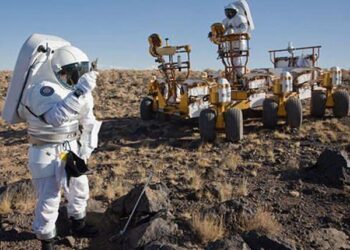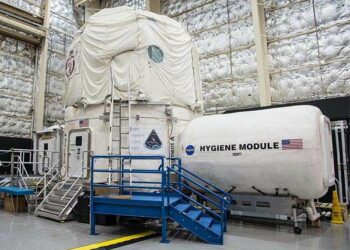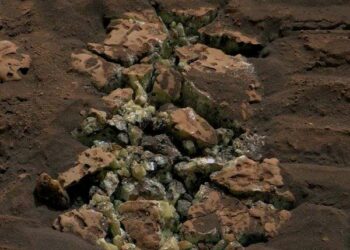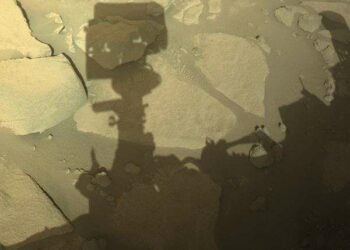
Tracing organic matter origins in Martian sediments
by Riko Seibo
Tokyo, Japan (SPX) May 14, 2024
Scientists are investigating Martian sediments to understand early environmental conditions and potential signs of past life. Sediments collected by the Curiosity rover from Gale Crater, an ancient lake formed 3.8 billion years ago, revealed organic matter with a lower carbon-13 isotope content than Earth’s, suggesting different formation processes on Mars.
A study in Nature Geoscience on May 9, 2024, led by Professor Yuichiro Ueno from Tokyo Institute of Technology and Professor Matthew Johnson from the University of Copenhagen, explains this finding. They discovered that the photodissociation of carbon dioxide (CO2) in the Martian atmosphere to carbon monoxide (CO) and subsequent reduction produces organic matter with depleted 13C content.
“On measuring the stable isotope ratio between 13C and 12C, the Martian organic matter has a 13C abundance of 0.92% to 0.99% of the carbon that makes it up. This is extremely low compared to Earth’s sedimentary organic matter, which is about 1.04%, and atmospheric CO2, around 1.07%, both of which are biological remnants, and are not similar to the organic matter in meteorites, which is about 1.05%,” explains Ueno.
Early Mars had a CO2-rich atmosphere. Laboratory experiments showed that solar UV light causes 12CO2 to dissociate into CO depleted in 13C, leaving behind CO2 enriched in 13C. This isotopic fractionation also occurs in the upper atmospheres of Mars and Earth. In a reducing Martian atmosphere, CO transforms into simple organic compounds like formaldehyde and carboxylic acids, which may have settled in sediments.
Model calculations indicated that in an atmosphere with a CO2 to CO ratio of 90:10, a 20% conversion of CO2 to CO would lead to sedimentary organic matter with d13CVPDB values of -135 percent. The remaining CO2 would have d13CVPDB values of +20 percent, matching the values seen in sediments analyzed by Curiosity and from a Martian meteorite. This suggests an atmospheric rather than biological process for organic matter formation on early Mars.
“If the estimation in this research is correct, there may be an unexpected amount of organic material present in Martian sediments. This suggests that future explorations of Mars might uncover large quantities of organic matter,” says Ueno.
Research Report:Synthesis of 13C-depleted organic matter from CO in a reducing early Martian atmosphere
Related Links
Tokyo Institute of Technology
Mars News and Information at MarsDaily.com
Lunar Dreams and more




















